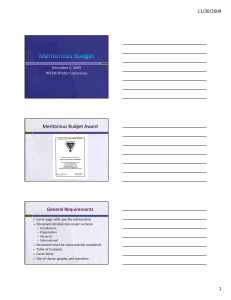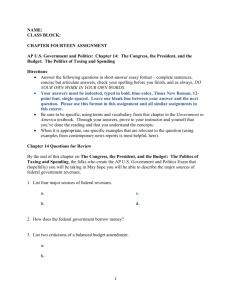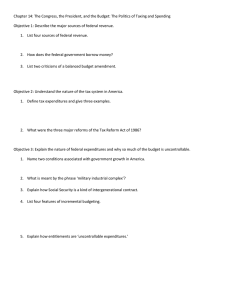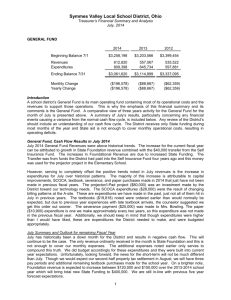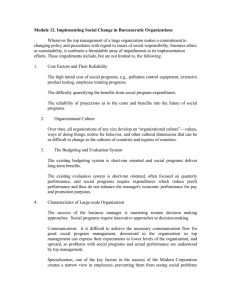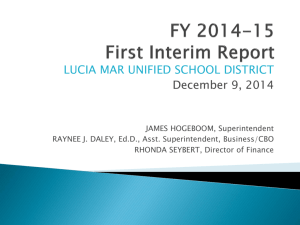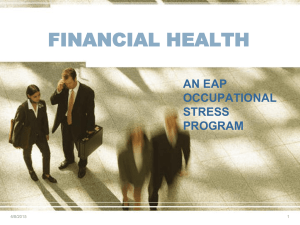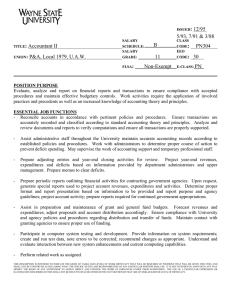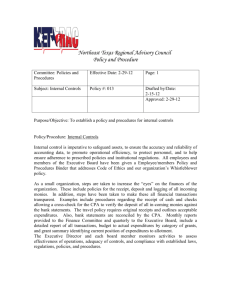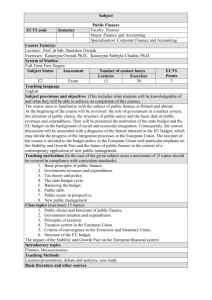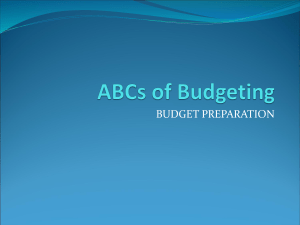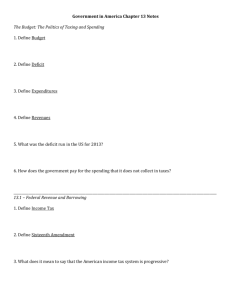Financial Management Policy for Non-Profits
advertisement
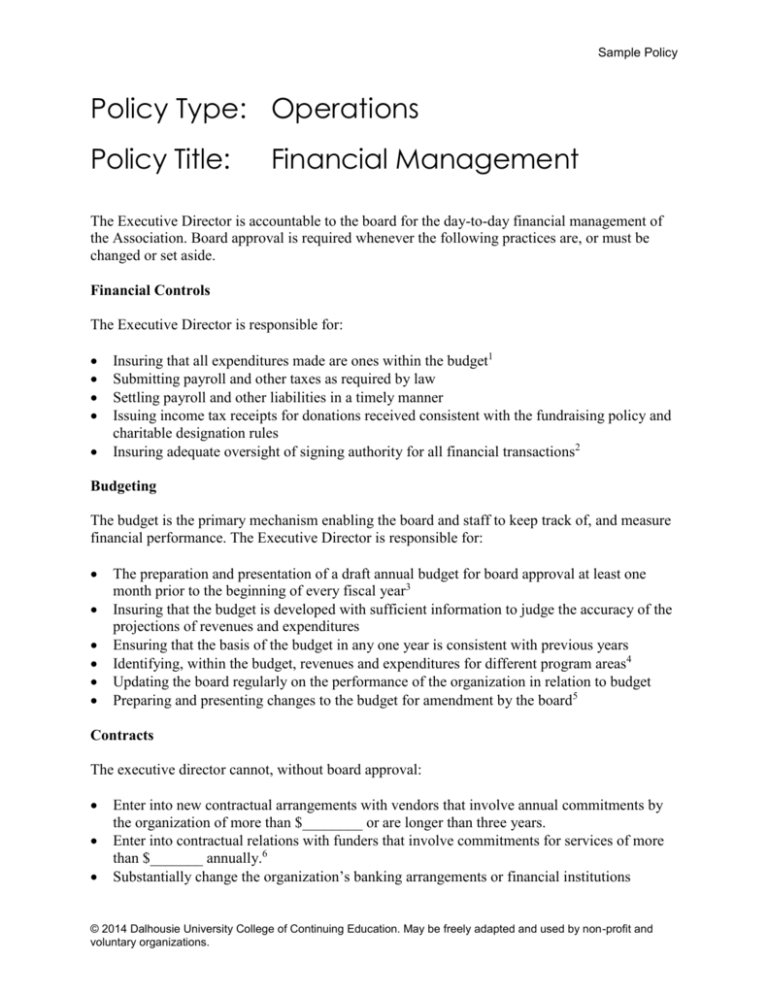
Sample Policy Policy Type: Operations Policy Title: Financial Management The Executive Director is accountable to the board for the day-to-day financial management of the Association. Board approval is required whenever the following practices are, or must be changed or set aside. Financial Controls The Executive Director is responsible for: Insuring that all expenditures made are ones within the budget1 Submitting payroll and other taxes as required by law Settling payroll and other liabilities in a timely manner Issuing income tax receipts for donations received consistent with the fundraising policy and charitable designation rules Insuring adequate oversight of signing authority for all financial transactions2 Budgeting The budget is the primary mechanism enabling the board and staff to keep track of, and measure financial performance. The Executive Director is responsible for: The preparation and presentation of a draft annual budget for board approval at least one month prior to the beginning of every fiscal year3 Insuring that the budget is developed with sufficient information to judge the accuracy of the projections of revenues and expenditures Ensuring that the basis of the budget in any one year is consistent with previous years Identifying, within the budget, revenues and expenditures for different program areas4 Updating the board regularly on the performance of the organization in relation to budget Preparing and presenting changes to the budget for amendment by the board5 Contracts The executive director cannot, without board approval: Enter into new contractual arrangements with vendors that involve annual commitments by the organization of more than $________ or are longer than three years. Enter into contractual relations with funders that involve commitments for services of more than $_______ annually.6 Substantially change the organization’s banking arrangements or financial institutions © 2014 Dalhousie University College of Continuing Education. May be freely adapted and used by non-profit and voluntary organizations. Sample Policy Enter into a loan agreement with a bank or financial institution. Financial Reporting and Record Keeping The executive director is responsible for: Maintaining a full and complete set of financial records in a manner consistent with accepted accounting and bookkeeping practices Reporting on any financial issues that jeopardize the ability of the organization to meet its financial obligations Responding to the advice from auditors on needed improvements to financial management practices7 Presenting particular financial reports as requested by the board from time-to-time Purchasing and the Protection of Assets The Executive Director is responsible for: Ensuring that where an expense for particular goods or services purchased is significant that there is an assessment of the quality and price offered by different vendors Not purchasing or enter into contracts in situations where he/she, members of board or staff have an undeclared conflict of interest Operating with adequate fire, theft and liability insurance in effect Operating with effective procedures for the safekeeping of key legal and contractual documents Operating with procedures for backing up and off site safekeeping of computer records ____________ Date Approved Note: Any policy should reflect the level of detail that a governing board is comfortable specifying as instructions to the executive director. This example will be adequate for most organizations with a full-time executive director. Such a policy requires the executive director to ensure that procedures are in place that supports these instructions. This example includes statements of what the executive director shall do and shall not do; some organizations may wish to take a more consistent approach to formulating the instructions. Some organizations may wish to divide the subcategories here into separate policies. 1 Executive directors ought to have some leeway here as not every expense can or should be anticipated. The board should identify the circumstances or amount where the ED should seek approval for unbudgeted expenditure 2 A separate policy may be necessary on who has signing authority in different circumstances. No cheques should be signed in advance of the recipient and amount being completely filled in. 3 In some cases a board committee may have budgetary planning responsibility. 4 This instruction says that, where possible, the organization will adopt some measure of program budgeting. 5 Most organizations will want to be more specific about what budget revisions require board approval. Certainly significant changes in revenues and expenditures warrant this, but perhaps not changes in the distribution of expenditures except where they can significantly affect established programs 6 This item tries to take into account service delivery contracts with government. Such contracts may have their own documentation in the form of a service agreement, MOU or MOA (Memorandum of Agreement) that the Chair of the board, on behalf of the organization, ought to sign. 7 The policy complements the requirement, often stated in by-laws (and therefore a board rather than staff responsibility), that an independent audit be undertaken. This does not preclude a statement here or elsewhere that provides direction to the ED on his/her role in the audit process. © 2014 Dalhousie University College of Continuing Education. May be freely adapted and used by non-profit and voluntary organizations.
